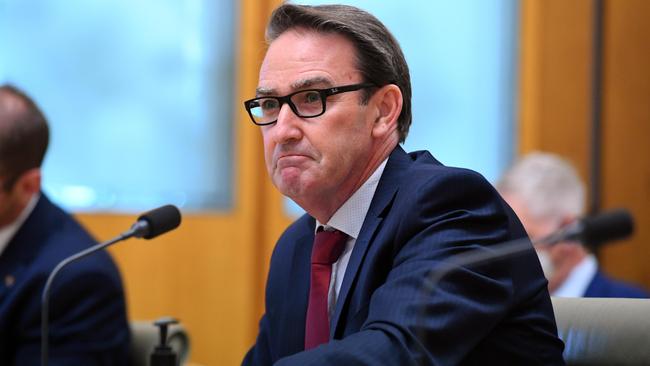
The cost of running Australia has jumped in recent years and the political system can’t deal with the consequences.
Both major parties are operating in the here and now, where for a couple of years revenue will be boosted by company tax due to a spike in commodity prices. A world in turmoil has given Australia not so much a decent pay rise as a one-off bonus and a breather.
But beyond that, serious belt-tightening will be required when revenue growth falls away, as mining profits ease and personal income tax cuts kick in big-time from 2024.
In his Budget Monitor, Chris Richardson outlines the relentless rise of social welfare and defence outlays, even as pandemic emergency spending washes out of the system.
The veteran budget watcher sees a nation “amid the second shift in its social compact with itself in the past 15 years”.
Treasury estimates a budget deficit by decade’s end of 1.8 per cent of national output, or almost $40bn in today’s dollars. Yet Richardson believes that may be far too optimistic.
Just like after the global financial crisis, Canberra’s spending trajectory is rising, and the economist says “much of it is increased spending on programs that aren’t linked to the frontline of crisis fighting”.
Australia’s sharp jump in running costs is partly due to a range of inquiries showing we’d underspent on social services and because, as Richardson says, autocrats’ egos mean we need to spend more on defence.
Soon, there will be pressure to alleviate poverty for those existing on the dole, which is inadequate. But the jobless are not seen as worthy of attention.
Some government costs, such as pensions and salaries, will rise because of the elevated inflation infecting the world.
The age pension is indexed twice a year and pegged to movements in average wages.
The National Disability Insurance Scheme is set to cost $25bn a year more thanks to decisions over the past year.
There will also be a spree of promises the major parties will make over the next two months.
Richardson says we can argue over how to get better value for money out of the NDIS or what’s the best defence in a nastier world of drones and cyber attacks?
“What you can’t do is wave away the problem and pretend it doesn’t exist,” he says. “That’s a fantasy state otherwise known as a federal election campaign.”
Richardson is adamant that we don’t even need a cash surplus, just a much healthier budget: “And the maths of that is inexorable: we need to identify spending we can cut and taxes we can raise.”
Household budgets are under great stress, as this newspaper has detailed in our cost of living series, despite the $250bn in extra savings stashed away during the pandemic.
The rise in living costs has outstripped income growth, hence a fall in real wages, and so the electorate demands fresh government action. Two-thirds of voters now have it as their top priority, according to the latest polling from JWS Research.
But the nation’s finances have a chronic structural problem, one the March 29 budget will glide past as it splashes cash to those judged needy and commits to more low-grade capital works. I can feel a dam coming on, as modest member Bert Kelly used to say.






At some point in the next term of parliament, hopefully sooner than later, Treasury Secretary Steven Kennedy will sit down with the incumbent treasurer to talk turkey about spending cuts, maybe even tax rises. We are living beyond our means.